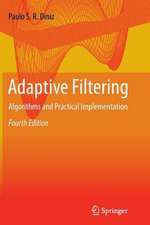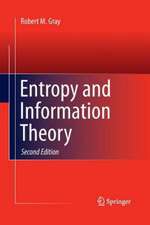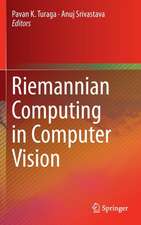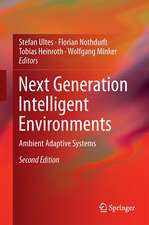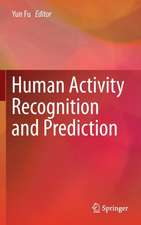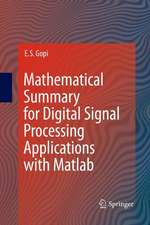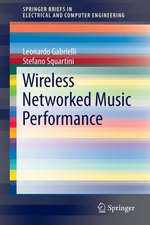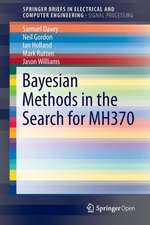Language Modeling for Automatic Speech Recognition of Inflective Languages: An Applications-Oriented Approach Using Lexical Data: SpringerBriefs in Speech Technology
Autor Gregor Donaj, Zdravko Kačičen Limba Engleză Paperback – 6 sep 2016
Din seria SpringerBriefs in Speech Technology
-
 Preț: 357.70 lei
Preț: 357.70 lei -
 Preț: 344.64 lei
Preț: 344.64 lei -
 Preț: 337.35 lei
Preț: 337.35 lei -
 Preț: 379.48 lei
Preț: 379.48 lei -
 Preț: 378.12 lei
Preț: 378.12 lei -
 Preț: 387.38 lei
Preț: 387.38 lei -
 Preț: 375.45 lei
Preț: 375.45 lei -
 Preț: 377.95 lei
Preț: 377.95 lei -
 Preț: 377.95 lei
Preț: 377.95 lei - 20%
 Preț: 293.48 lei
Preț: 293.48 lei -
 Preț: 375.62 lei
Preț: 375.62 lei -
 Preț: 379.09 lei
Preț: 379.09 lei -
 Preț: 379.09 lei
Preț: 379.09 lei -
 Preț: 377.18 lei
Preț: 377.18 lei -
 Preț: 381.98 lei
Preț: 381.98 lei -
 Preț: 380.45 lei
Preț: 380.45 lei -
 Preț: 344.52 lei
Preț: 344.52 lei -
 Preț: 375.62 lei
Preț: 375.62 lei -
 Preț: 375.45 lei
Preț: 375.45 lei - 20%
 Preț: 322.02 lei
Preț: 322.02 lei -
 Preț: 377.57 lei
Preț: 377.57 lei -
 Preț: 379.09 lei
Preț: 379.09 lei -
 Preț: 378.54 lei
Preț: 378.54 lei -
 Preț: 374.68 lei
Preț: 374.68 lei -
 Preț: 378.92 lei
Preț: 378.92 lei -
 Preț: 343.51 lei
Preț: 343.51 lei -
 Preț: 441.85 lei
Preț: 441.85 lei -
 Preț: 375.45 lei
Preț: 375.45 lei -
 Preț: 376.22 lei
Preț: 376.22 lei -
 Preț: 379.68 lei
Preț: 379.68 lei -
 Preț: 375.07 lei
Preț: 375.07 lei -
 Preț: 410.94 lei
Preț: 410.94 lei -
 Preț: 377.35 lei
Preț: 377.35 lei -
 Preț: 344.75 lei
Preț: 344.75 lei -
 Preț: 379.68 lei
Preț: 379.68 lei -
 Preț: 376.22 lei
Preț: 376.22 lei -
 Preț: 377.73 lei
Preț: 377.73 lei
Preț: 375.62 lei
Nou
Puncte Express: 563
Preț estimativ în valută:
71.87€ • 75.24$ • 59.47£
71.87€ • 75.24$ • 59.47£
Carte tipărită la comandă
Livrare economică 07-21 aprilie
Preluare comenzi: 021 569.72.76
Specificații
ISBN-13: 9783319416052
ISBN-10: 3319416057
Pagini: 70
Ilustrații: VIII, 71 p. 13 illus., 6 illus. in color.
Dimensiuni: 155 x 235 x 4 mm
Greutate: 0.12 kg
Ediția:1st ed. 2017
Editura: Springer International Publishing
Colecția Springer
Seria SpringerBriefs in Speech Technology
Locul publicării:Cham, Switzerland
ISBN-10: 3319416057
Pagini: 70
Ilustrații: VIII, 71 p. 13 illus., 6 illus. in color.
Dimensiuni: 155 x 235 x 4 mm
Greutate: 0.12 kg
Ediția:1st ed. 2017
Editura: Springer International Publishing
Colecția Springer
Seria SpringerBriefs in Speech Technology
Locul publicării:Cham, Switzerland
Cuprins
Introduction.- Speech Recognition in Inflective Languages.- Performance Evaluation Using Lexical Data.- Application Oriented Language Modeling.- An Example Application.- Conclusion.
Textul de pe ultima copertă
This book covers language modeling and automatic speech recognition for inflective languages (e.g. Slavic languages), which represent roughly half of the languages spoken in Europe. These languages do not perform as well as English in speech recognition systems and it is therefore harder to develop an application with sufficient quality for the end user. The authors describe the most important language features for the development of a speech recognition system. This is then presented through the analysis of errors in the system and the development of language models and their inclusion in speech recognition systems, which specifically address the errors that are relevant for targeted applications. The error analysis is done with regard to morphological characteristics of the word in the recognized sentences. The book is oriented towards speech recognition with large vocabularies and continuous and even spontaneous speech. Today such applications work with a rather small number of languages compared to the number of spoken languages.
Concentrates on speech recognition for inflective languages – representative of roughly half of Europe -- and their unique characteristics
Introduces new application-oriented methods for measuring the performance of a speech recognition system
Presents examples of language modeling to maximize the performance of a speech recognition system
Provides techniques for analyzing errors and identifying their sources in a speech recognition system from a lexical point of view rather than acoustic point of view
Caracteristici
Concentrates on speech recognition for inflective languages – representative of roughly half of Europe and their unique characteristics Introduces new application-oriented methods for measuring the performance of a speech recognition system Presents examples of language modeling to maximize the performance of a speech recognition system Provides techniques for analyzing errors and identifying their sources in a speech recognition system from a lexical point of view rather than acoustic point of view


